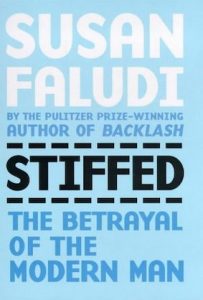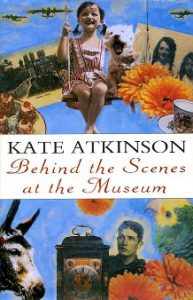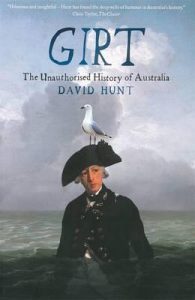This is the sixth book in Antonia Forest’s series about the Marlow family. I’ve really enjoyed most of them so far, especially the school books, but all I know about this one is that it involves drug-smuggling pigeons, thugs who speak incomprehensible slang and no Nicola. It sounds like some bizarre children’s version of A Clockwork Orange and the cover is even worse than that of Peter’s Room. In other words, I have very low expectations for this book, but it could be an interesting failure. We shall see.

Chapter One: “There’s a Hole in your Boatie”
This chapter begins with a half-page sentence to rival Henry James – eight commas, two semi-colons, one colon, five em-dashes, one set of parenthesised comments, and by my count, eighteen clauses. Antonia Forest seems to be declaring up front that if a child reader can’t cope with an enormously complicated info-dump of a sentence on the first page, that reader might as well give up now. I think it’s meant to show Lawrie’s tangled thought processes, but this could have been demonstrated just as effectively by adding about ten full-stops.
Anyway, we learn that it’s half-term (so, February? March?) and Lawrie, Peter and Patrick are trying out the canoe that the boys built at Christmas after all the Gondalling. Nicola is staying with Miranda in London and Ginty is visiting her grandmother in Paris. Lawrie is sulking about being abandoned by her twin, although when Nicola quite reasonably points out that she wouldn’t object if Lawrie had gone off with Tim, Lawrie says, “But that’s diff’rent.”
Lawrie is such a brat, but I can’t help laughing at her melodramatics. A couple of pages into the chapter, she’s weeping to herself as she imagines being the heroine of BOATING TRAGEDY IN HOGGART’S LOCK (“Mrs Marlow, mother of eight, said with tears in her eyes: “I am prostrated with grief. Lawrie was my favourite child…”).
Lawrie’s fantasy isn’t so far-fetched, because the canoe is rapidly filling with water, nearly crashes into a hidden tree root and ends up sinking when they reach the sea. They are also hours too late to see the ducks fly overhead and Peter is annoyed because he wanted to shoot some fowl. (I can’t believe no one has confiscated his rifle yet! He killed Jael with that rifle! Patrick is being a lot more forgiving than I would have been.) Peter is also doing his very irritating regional dialect thing. At least he refrains from shooting one of a pair of swans. (Isn’t shooting swans illegal in England because they belong to the Queen? Or is that only on the Thames?) The boys drag the canoe out of the mud and leave it on the promontory, then they all start squelching their way home.
Oh, the other thing is that Patrick reveals he’s home alone, with his parents still in London. He only made a fuss about coming to the country because he thought his sort-of-girlfriend Ginty would be at Trennels. Because they clearly don’t write to one another or phone or communicate in any effective way. So I guess their romance hasn’t progressed much since Christmas.
Chapter Two: “Two Pigeons Flying High”
As they walk home, they encounter A Thuggery of Teds, seven juvenile delinquents led by a boy called Jukie. For some reason, the Thuggery are employed by Miss Culver, a tweedy, church-going local woman, to look after her prize pigeons. Neither Patrick nor his parents can stand Miss Culver. It’s unusual for tolerant Mr Merrick to take a dislike to anyone, but
“…he says she stands four-square and looks him straight in the eye and talks to him man-to-man and it frightens him to death. And ma says she’s a natural-born bully.”
Miss Culver also had the nerve to tell poor dead Cousin Jon (before he died, obviously) that he should get rid of his hawks, because they preyed on her pigeons. Plus, her pigeons are “horrible little freaks” who’ve been overbred with “so much wattle on their bills they can’t see to fly”. But before the children can discuss this further, a flock of pigeons flies overhead, Peter tries to shoot one and Patrick suddenly intervenes because he realises there’s also a falcon in the air. And it’s Regina! The falcon he was forced to release six months ago because he couldn’t take her to London with him! And dear old Bucket recognises her, “his tail fluttering in ecstatic welcome”. Awww!
Unfortunately, Miss Culver turns up and tries to shoot Regina because the falcon has just killed and started eating one of the Culver pigeons. Patrick stands in her way and Peter raises his own gun, with “the situation … rapidly becoming stark, staring bonkers”. Fortunately, Miss Culver realises she’s pointing her gun at the only son of the local MP:
“It would have been one thing apparently, thought Patrick hilariously, for Gunslinger Culver to pepper a peasant but quite another to murder a Merrick…”
She calms down a little, gives him a warning about keeping his hawks away from her birds, and is about to walk off when Peter characteristically puts his foot in it. She explodes with rage:
“He was incredulous; he was fascinated; the hope grew that perhaps she would end her – was tirade the word? – by flinging down her glove and challenging him to a duel.”
Lawrie thinks it’s most “funny-peculiar” for a grown-up to behave like this when grown-ups are supposed to stop fights, not start them. Although I’m not sure how respectable Miss Culver can really be when she employs the Thuggery? I think we’re meant to be suspicious of her from the start, based on her “grotesque” physical appearance. Mind you, in previous books, Antonia Forest has heartily disapproved of women who wear fashionable clothes and make-up, so female characters can’t really win in this world, whatever they do.
Anyway, it’s nice that Regina’s back. She flies onto Patrick’s fist and they head for home, Patrick’s eyes “blazing with triumph and pleasure”.
You might also be interested in reading:
The Thuggery Affair, Part Two
The Thuggery Affair, Part Three
The Thuggery Affair, Part Four
The Thuggery Affair, Part Five
The Thuggery Affair, Part Six
The Thuggery Affair, Part Seven
‘Autumn Term’ by Antonia Forest
‘The Marlows and the Traitor’ by Antonia Forest
‘Falconer’s Lure’ by Antonia Forest
‘End of Term’ by Antonia Forest
‘Peter’s Room’ by Antonia Forest






 I’d been saving this latest installment of the
I’d been saving this latest installment of the 

 I also liked John Safran’s
I also liked John Safran’s  For some reason, none of the Young Adult books I read this year captured my interest. I’m sure it was me, rather than the books, which were mostly well-reviewed and award-winning. I had more luck with books aimed at younger readers. I liked
For some reason, none of the Young Adult books I read this year captured my interest. I’m sure it was me, rather than the books, which were mostly well-reviewed and award-winning. I had more luck with books aimed at younger readers. I liked 
 It’s especially nice that books and writing (and an enormous thesaurus) are the key to most of Mia’s eventual successes, whether she’s penning a threatening letter to the exploitative boss of an illegal immigrant friend or she’s writing down her family’s story to win a class competition. I must admit that the novel’s conclusion seemed implausibly optimistic and saccharine to me, but by that stage, I was so happy to see good triumph over evil that I didn’t mind too much. The author,
It’s especially nice that books and writing (and an enormous thesaurus) are the key to most of Mia’s eventual successes, whether she’s penning a threatening letter to the exploitative boss of an illegal immigrant friend or she’s writing down her family’s story to win a class competition. I must admit that the novel’s conclusion seemed implausibly optimistic and saccharine to me, but by that stage, I was so happy to see good triumph over evil that I didn’t mind too much. The author,